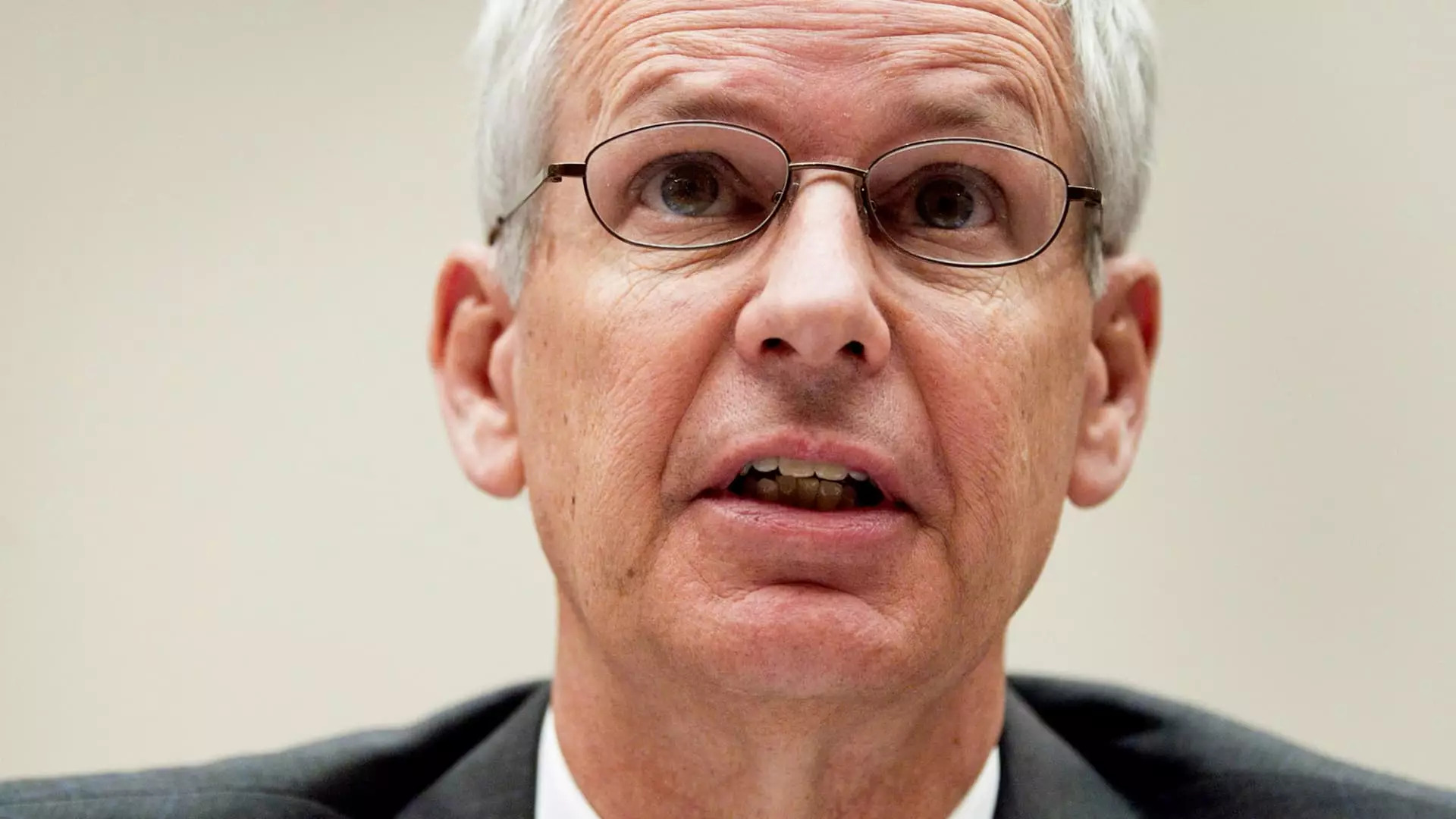Dish Network’s journey can be likened to the popular TV sitcom “Seinfeld,” whose concluding episode left many fans disillusioned. The company’s trajectory, initially filled with potential, has recently culminated in a disappointing finale, mirroring the sentiments surrounding the show’s 1998 conclusion. Sharing this analogy during an earnings call in 2011, Dish co-founder Charlie Ergen spoke about the sitcom’s narrative structure, noting its seemingly disjointed storylines that ultimately coalesced at the end. Regrettably, Dish’s own narrative appears not to have achieved such a synthesis, leading to an unsatisfactory resolution in its business saga.
On a recent Monday, pending regulatory approval, EchoStar, the parent company of Dish, announced a shocking sell-off of the pay-TV provider to DirecTV for a mere nominal price of $1, coupled with a staggering $9.75 billion debt obligation. The market’s reaction was swift; EchoStar shares plummeted by more than 11%. Such a transaction may seem shocking at first glance, yet it epitomizes a much larger trend in the content-distribution industry, characterized by rapid decline and unprecedented challenges.
The crux of Dish’s struggle lies in its failure to adapt to changing consumer preferences. As millions flocked towards streaming platforms and high-speed internet services, Dish has continuously lost ground, shedding a staggering 63% of its video subscribers since 2016. EchoStar’s CEO Hamid Akhavan, in a recent CNBC interview, candidly acknowledged the pressures mounting on traditional content providers, stating, “Times have changed,” to emphasize the ongoing seismic shifts in consumer behavior and industry dynamics.
During the height of its success, Dish was a formidable player in the satellite television market. However, the advent of streaming services and enhanced broadband offerings from competitors like Comcast and Charter has rendered satellite TV obsolete. This radical transformation has drastically eroded Dish’s enterprise value and market position. In discussions of a potential merger with DirecTV back in 2014, Dish’s market capitalization stood at over $28 billion. Today, the stark contrast illustrates the toll of the last decade on the company.
Dish’s ambitious attempts to diversify its offerings and venture into the wireless business have faced insurmountable hurdles. Despite acquiring Boost Mobile in 2019 as part of a divestiture agreement with T-Mobile, Dish struggled to raise the necessary capital to effectively compete with industry giants like AT&T, Verizon, and T-Mobile. Akhavan revealed that a major impediment to growth was the company’s divided focus: “We couldn’t feed [the wireless] business properly,” he stated, attributing it to management distractions stemming from spearheading multiple initiatives without a cohesive strategy.
Charlie Ergen, often viewed as an adept strategist, metaphorically illustrated Dish’s potential paths through hand gestures, showcasing a myriad of future opportunities. However, these avenues bore little fruit, as the company continually juggled its declining pay-TV business with an ambitious wireless vision that never materialized. The disconnect between aspirations and reality signals a crucial lesson about the perils of distraction and the importance of a clear, singular focus.
As Dish closes this chapter of its history, it inevitably invites scrutiny and reflection. The parallels between its decline and the infamous finale of “Seinfeld” highlight systemic issues in strategic planning and execution. The once-prominent brand, burdened by debt and an inability to evolve, now finds itself at a crossroads.
Dish’s experience serves as a cautionary tale, exemplifying the necessity for companies to remain aligned with consumer trends, streamline operations, and evolve their business models to remain relevant in a rapidly innovative landscape. While the future for Dish remains uncertain, the lessons learned from both their journey and the narrative complexities of “Seinfeld” may offer valuable insights as they navigate the tumultuous waters ahead. Ultimately, the hope is for a rejuvenation rather than an everlasting finale of disappointment.

